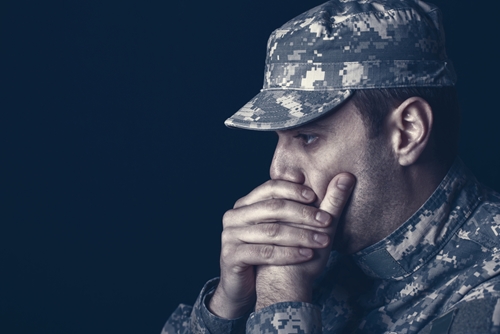While the organizations, systems and legal frameworks available to veterans are far from perfect, there has been recent progress in several relevant areas. One improvement has been the increasing understanding of post-traumatic stress disorder and the greater number of solutions put into place to address it among veterans. Nonprofits and government agencies at all levels have taken divergent approaches to assist vets struggling with PTSD. Some of the latest breakthroughs have come in the form of new legal protections directly dealing with stress in the military.
Spending authorization bill addresses PTSD, other mental traumas
The recent National Defense Authorization Act conference report included a bipartisan bill designed to assist veterans with metal traumas, including PTSD. The piece of legislation was put forward by senators Gary Peters, Steve Daines, Thom Tillis and Kirsten Gillibrand, according to The Oakland Press. It ensures that when service members leave the military with a less than honorable discharge caused by mental trauma, there are structures in place to assist them. Disorders left untreated can become even worse for their sufferers, making such legislation vital.
"Discharges may sometimes be directly caused by the symptoms of mental trauma."
Less than honorable discharges typically cause veterans to become exempt from many benefits which take effect after their service. The news source noted that the behavioral issues that lead to such discharges can be minor, and may sometimes be directly caused by the symptoms of mental trauma. In such cases, it's clear that veterans need help and assistance, rather than a severed connection to further government programs.
"This legislation will give our brave men and women who are suffering from the invisible wounds of war an opportunity to access the benefits they've earned through their service," Sen. Peters said, according to the source. He praised President Barack Obama for signing the bill into law.
Sen. Peters is himself a former U.S. Navy Reserve lieutenant commander. He restated his efforts to ensure veterans have help from the federal government as they transition into civilian situations. Those with traumatic brain injuries, PTSD, or any mental conditions brought on by trauma, will stand a better chance of making that move due to the passage of the recent amendment.
More specialized assistance needed
While the aforementioned bill and others like it will undoubtedly help some veterans, there's always more to do in the fight against trauma-related disorders. According to Idaho news channel KIDK, there is a need to focus on mental health services specifically for female veterans. With more women serving in the military than ever before, it stands to reason that they are being increasingly affected by the issues that can harm service members.
Army veteran Kelly Thompson told the news source that more specialized offerings are necessary, as female veterans sometimes feel hesitant to speak out about their experiences, especially if they are related to sexual harassment or assault. KIDK noted that the Female Veteran Suicide Act, signed into law by President Obama in June, tasks the Department of Veterans Affairs with investigating new ways to ensure female veterans receive the help they need. The suicide rate among female vets is six times that of women who have never served, and demands immediate attention.

